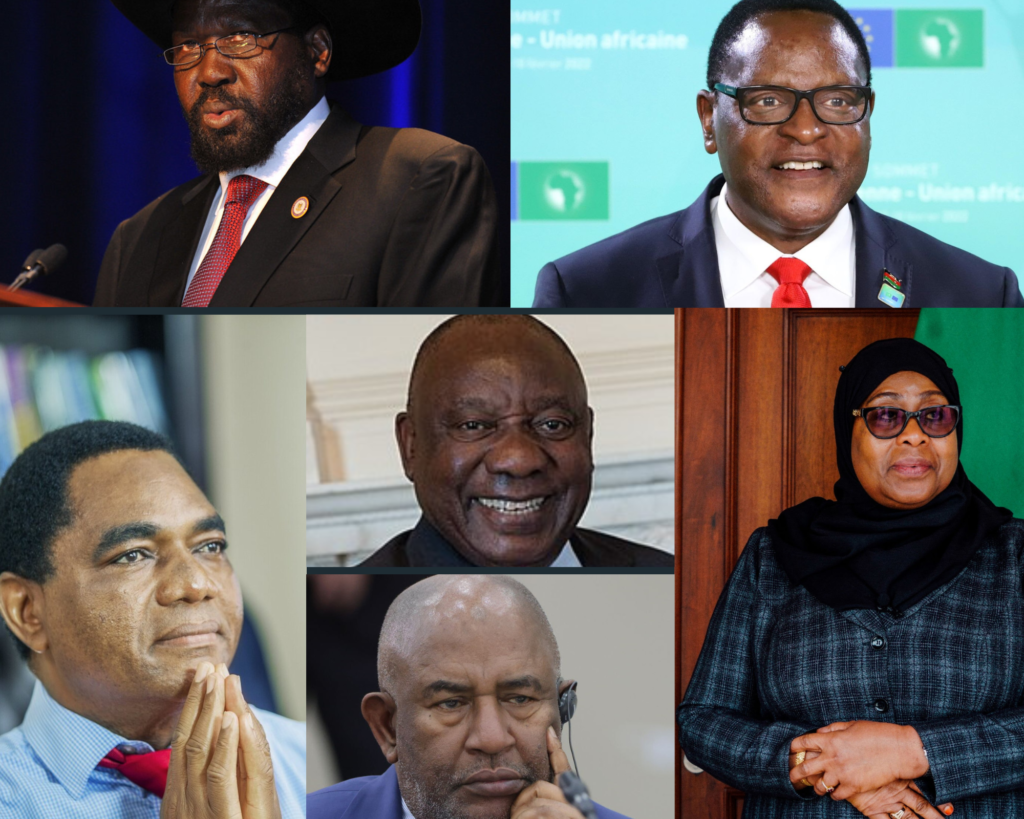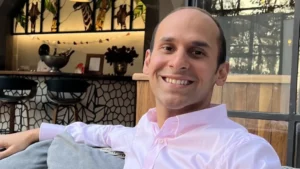
- With the inclusion of six nations in the developing countries bloc, BRICS now controls 30 percent of the global economy
- BRICS appears more accommodating than the existing international affiliations, with 27 percent of the 11 member countries being African
- African heads of state emphasized the need for a fair system to acquire loans
With the inclusion of six nations in the developing countries bloc, BRICS now controls 30 percent of the global economy, with their total GDP at US$30.76 trillion. For Africa, however, BRICS appears more accommodating than the existing international affiliations. 27 percent of the 11 member countries are now African. The nations on the continent that are part of the organization include South Africa, Egypt, and the Republic of Ethiopia.
The just concluded 15th BRICS summit attracted several heads of state in Africa, who hold solid opinions on why BRICS is essential to the continent. Among the most outstanding characteristics of the bloc is its possibility to issue loans in local currencies. Recently, the NDB announced plans to begin lending in South African rand and Brazilian Real to defy the overreliance on the United States dollar. On August 15, the bank closed the auction for its first South African rand bonds. According to Reuters, the two bonds, a 1 billion rand (US$52.3 million) five-year note and a 500 million rand (US$26.8 million) three-year note, attracted 2.67 billion rand of bids.
Loans from other organizations, such as the World Bank and the International Monetary Fund, have been a top hindrance to the development of African nations. This article focuses on the key takeaways from African Presidents.
Key takeaways from African Presidents at the 15th BRICS summit
President Cyril Ramaphosa, South Africa
On the opening day of the 15th BRICS conference, the host president said this about the summit.
“BRICS ” stands for solidarity, progress, inclusivity, sustainable development, and a more equitable order. We are an inclusive formation of developing and emerging economies that are seeking to work together and benefit from our rich cultures, histories, and systems to advance the prosperity of our people.”
President Nana Akufo-Addo, Ghana
“Never has there been such a time in history where malevolent forces in the world are combined to in such a manner to bring hardships to the world, especially to those of us in Africa…Now more than ever, strong partnerships between the BRICS nations and Africa, reinforced political dialogue and expanded cooperation in economic growth and international security are required. We have to work together to achieve our goals, including a fair Equitable process of energy transition… We call for the reform of the United Nations, especially on the composition and structure of its security council.”
Read: India and UAE agree to settle trade in Rupees ahead of BRICS summit
President Azali Assoumani, Comoros
President Azali Assoumani gave his speech representing the African Union as its current head.
“This BRICS summit is giving an important meaning for countries to explore areas of exploration that would benefit all of us. We must understand how the bloc can expand to other countries in Africa. The continent is also facing a challenge in industrialization because Africa has enormous amounts of raw materials but cannot exploit them. The collaboration of BRICS and Africa would be useful in that area in a win-win situation.”
President Samia Suluhu, Tanzania
“BRICS- African partnership needs to focus on unlocking potential opportunities on the continent towards the realization of agenda 2063 and the sustainable development goals, including the operationalization of the African Continental Free Trade Area (AfCFTA). Forging ahead, Tanzania envisages the BRICS-African partnership that supports African endeavours in promoting and strengthening regional value chains to help African producers gain broader export markets.”
President Salva Kiir, South Sudan
“With BRICS countries, we can enter into any corporation without fear of strategic cooperation of certain powerful states. This includes the coming of in-between of mutually agreed economic and trade arrangements.”
President Hakainde Hichilema, Zambia
“COMESA countries see this as a rare opportunity to address the challenges we have kept addressing on many platforms. These challenges include the need to reform the global order. In particular, we would wish to address critical ingredients to development, such as the cost of capital. The BRICS platform should be used to expedite the reform properties around the access to capital.”
President Lazarus Chakwera, Malawi
“Global crises- namely COVID-19, Russia- Ukraine war and climate change- have exposed harsh realities we can no longer deny nor find acceptable. First, they have exposed African countries’ extreme vulnerability to external shocks . This is due to weak infrastructural, food health, environmental management, governance, and educational and social protection systems that we need to develop to make our economies more resilient. Secondly, they have exposed the global financial and institutional systems incapable of responding to our needs speedily and fairly. We need to do something about it, and BRICS stands in a position to help the vulnerable African states.”
African heads of state emphasized the need for a fair system to acquire loans, a strengthened system of value chain addition, heightened democracy and a considerate energy transition system.
Read: BRICS admit six countries to the bloc, seeks to boost local currency lending
- SEO Powered Content & PR Distribution. Get Amplified Today.
- PlatoData.Network Vertical Generative Ai. Empower Yourself. Access Here.
- PlatoAiStream. Web3 Intelligence. Knowledge Amplified. Access Here.
- PlatoESG. Automotive / EVs, Carbon, CleanTech, Energy, Environment, Solar, Waste Management. Access Here.
- PlatoHealth. Biotech and Clinical Trials Intelligence. Access Here.
- ChartPrime. Elevate your Trading Game with ChartPrime. Access Here.
- BlockOffsets. Modernizing Environmental Offset Ownership. Access Here.
- Source: https://web3africa.news/2023/08/28/news/key-takeaways-from-african-presidents-at-the-15th-brics-summit/
- :has
- :is
- :where
- 1
- 11
- 15%
- 27
- 30
- 500
- 67
- 8
- a
- About
- about IT
- acceptable
- access
- According
- Achieve
- acquire
- addition
- address
- addressing
- admit
- advance
- affiliations
- africa
- African
- agenda
- agreed
- ahead
- All
- also
- among
- amounts
- an
- and
- announced
- any
- appears
- ARE
- AREA
- areas
- around
- article
- AS
- At
- attracted
- Auction
- AUGUST
- Bank
- BE
- because
- been
- begin
- being
- benefit
- between
- Billion
- Bonds
- boost
- Brazilian
- brics
- BRICS Nations
- bring
- broader
- but
- call
- CAN
- cannot
- capital
- certain
- chain
- chains
- challenge
- challenges
- characteristics
- Climate
- closed
- collaboration
- combined
- coming
- composition
- concluded
- Conference
- continent
- controls
- cooperation
- CORPORATION
- Cost
- Council
- countries
- critical
- currencies
- Currency
- Current
- day
- Democracy
- develop
- developing
- Developing Countries
- Development
- dialogue
- do
- Dollar
- due
- Economic
- Economic growth
- economies
- economy
- educational
- Egypt
- emerging
- emphasized
- endeavours
- energy
- enormous
- Enter
- environmental
- equitable
- especially
- essential
- Ethiopia
- EVER
- existing
- Expand
- expanded
- expedite
- Exploit
- exploration
- explore
- export
- exposed
- external
- extreme
- facing
- fair
- fairly
- fear
- financial
- Find
- First
- Focus
- focuses
- food
- For
- Forces
- Forging
- formation
- Free
- from
- fund
- Gain
- GDP
- Giving
- Global
- Global economy
- global financial
- Goals
- governance
- Growth
- hardships
- Have
- head
- heads
- Health
- heightened
- help
- hindrance
- his
- history
- hold
- host
- How
- However
- HTTPS
- important
- in
- incapable
- include
- includes
- Including
- inclusion
- Inclusive
- Inclusivity
- infrastructural
- Institutional
- International
- international monetary fund
- into
- issue
- IT
- ITS
- just
- kept
- Key
- Lazarus
- lending
- Loans
- local
- longer
- make
- management
- manner
- many
- Markets
- materials
- meaning
- member
- million
- Monetary
- more
- most
- must
- mutually
- Nations
- ndb
- Need
- needs
- no
- now
- of
- on
- opening
- Opinions
- opportunities
- Opportunity
- order
- organization
- organizations
- Other
- our
- outstanding
- part
- particular
- Partnership
- partnerships
- percent
- plans
- platform
- Platforms
- plato
- Plato Data Intelligence
- PlatoData
- political
- position
- possibility
- potential
- powerful
- president
- Presidents
- process
- Producers
- Progress
- promoting
- properties
- prosperity
- protection
- rand
- RARE
- Raw
- real
- realization
- recently
- reform
- regional
- representing
- Republic
- required
- resilient
- responding
- Reuters
- Rich
- Said
- security
- see
- seeking
- Seeks
- settle
- several
- should
- situation
- SIX
- Social
- solid
- something
- South
- South Africa
- South African
- south african rand
- speech
- stands
- State
- States
- Strategic
- strengthening
- strong
- structure
- such
- Summit
- Supports
- sustainable
- Sustainable Development
- system
- Systems
- Takeaways
- than
- that
- The
- the world
- their
- Them
- There.
- These
- they
- this
- those
- time
- to
- together
- top
- Total
- towards
- trade
- transition
- Trillion
- two
- UAE
- Ukraine
- ukraine war
- understand
- union
- United
- united nations
- United States
- unlocking
- us
- used
- value
- vulnerability
- Vulnerable
- war
- we
- WHO
- why
- Win-Win
- with
- without
- Work
- work together
- world
- World Bank
- would
- zephyrnet













